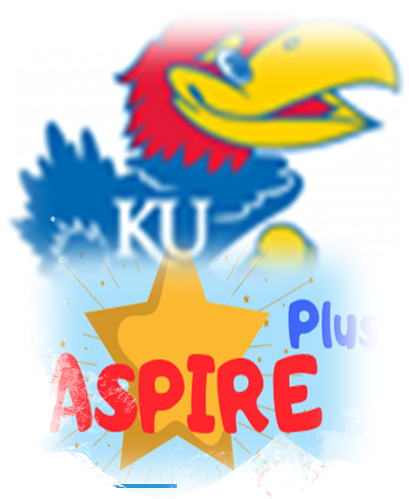Self-determination is a concept reflecting the belief that all individuals have the right to direct their own lives. It is acting as the primary causal agent in one’s life free from undue external influence or interference (Wehmeyer, 1996). The state’s goal in implementing self-determination initiatives is to provide students with the “skills, opportunities and supports to be the person driving their lives” (Shogren, 2015). Self-determination is not a program, intervention or policy. Rather, it reflected in how students demonstrate self-determined behavior. While it is not any one program, intervention or policy, the state has adopted ASPIRE and the Self-Determined Learning Model of Instruction to support educators to assist students to build these behaviors.
Below is a list of components of self-determination (Denney and Daviso, 2012):
Goal setting and attainment
Self-observation, evaluation, and reinforcement skills
Self-instruction, self-regulation
Self-advocacy and leadership skills
Positive attributes of efficacy and outcome expectancy
Self-awareness
Choice making
Decision making
Problem solving
Independence, risk taking, and safety skills
Internal locus of control
Self-knowledge
Self-Determination Community of Practice - Link available soon
Transition Professional Learning and Technical Assistance 2023-2023 (TBD)
ASPIREPlus
ASPIREPlus is the name of the Partnership grant awarded by the Institute of Education Science (IES) to Georgia to collaborate with the University of Kansas and Dr. Michael Wehmeyer to assist in the scale-up of self-determination initiatives, including implementation of the Self-Determined Learning Model of Instruction (SDLMI). The collaboration will allow us to conduct research on the effectiveness of the student-led IEP initiative (ASPIRE) and the SDLMI in Georgia.
Secure Your Spot in ASPIREPlus

Promoting self-determination involving addressing knowledge, skills, and attitudes that students need to take more control over their lives and responsibility for their decisions. The Division for Special Education Services and Supports is dedicated to providing districts with the tools needed to support the development of self-determination in their students.
The collaboration with the University of Kansas to provide training and research to build capacity for the implementation of ASPIRE and the Self-Determination Model of Instruction (SDLMI) will be virtual. The support will include live sessions for training on the materials and tools, as well as team breakout session to prepare for full implementation. Planning will take place between live virtual sessions at the discretion of the districts.
Webinars
Resources - Coming Soon
Self-Determined Learning Model of Instruction (SDLMI) and the Self-Determination Inventory (SDI)
The Self-Determined Learning Model of Instruction (SDLMI) is based on the principles of self-determination and student-involvement. The SDLMI is used by teachers to support students in:
learning and using self-determination skills such as problem solving, goal setting, self-advocacy, self-monitoring, self-evaluation,
setting meaningful instructional goals,
working toward and achieving goals related to academic and transition domains, and
achieving better outcomes as he or she leaves school and moves into adult life.
The Self-Determination Inventory System (SDIS) is a web-based system of assessment that measures components related to self-determination. It includes the Self-Determination Inventory: Student Report (SDI:SR), Self-Determination Inventory: Parent/Teacher Report (SDI:PTR), and the Self-Determination Inventory: Adult Report (SDI:AR). Data from the reports can be gather to identify changes in student self-determination over time (e.g., at the beginning and end of the school year, before and after an intervention is implemented, etc.). These tools are housed at
Self-Determination: University of Kansas.
Resources
Active Student Participation Inspires Real Engagement (ASPIRE)
ASPIRE is a student-led individual education program (IEP) initiative designed to develop self-determination skills in the following areas:
- Problem solving
- Self-evaluation
- Choice-making
By actively participating in their IEP, students learn about their strengths, challenge areas, interests, present levels, accommodations, and services. Students have the opportunity to set goals, plan for their future, and develop self-advocacy skills. Allowing students to participate in the IEP process supports the spirit of the law for students to participate in transition planning.
Resources
- PowerPoint Presentations (2020 Best Practices Forum)
- Self-Determination Assessment Tools
- The Self-Determination Inventory (SDI) is a self-reporting tool that asks questions about how the student feels about their ability to be self-determined in the area of the essential characteristics of self-determined actions. This tool was normed with students with and without disabilities from ages 13-22. There are audio components, in-text definitions to assist students with reading difficulties. This tool was designed to be used with the Self-Determined Learning Model of Instruction but can be used with any self-determination initiative that targets the same components measured.
- The ChoiceMaker Self-Determination Assessment is a curriculum-referenced tool that measures students' self-determination skills and progress in the ChoiceMaker Self-Determination Curriculum. Educators complete a 5-point Likert scale response for each of the 62 items across the student skills and opportunities at school sections.
- The AIR Self-Determination Assessment focuses on two main components: Capacity and Opportunity. Capacity refers to the knowledge, abilities, and perceptions which allow the student to be self-determined. Opportunity refers to the student's chances to use their knowledge and abilities. The AIR Self-Determination Scale is available free of charge in a variety of forms: student form, Spanish student form, parent form, and educator form.
- The ARC Self-Determination Scale was developed by Dr. Michael Wehmeyer and colleagues to measure strengths and weaknesses of adolescents with disabilities, facilitate student involvement in educational planning and instruction to promote self-determination as an educational outcome, and assess student self-determination skills for research purposes.
- Using "Whose Future Is It?" to Teach Self-Determination Skills: This website contains information, guidance, and links for the "Whose Future Is It" program.
- ASPIRE Tools:
ASPIRE Videos and Modules

